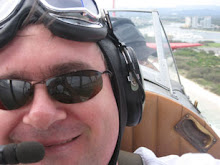An interesting view on the entire series, now that we're able to sit and watch the six episodes back to back.
"As literary critics have long pointed out, the arbitrary yoking together of events in the service of storytelling is one of the fundamental characteristics of all narrative. R2-D2 needs to hook up with Luke on Tatooine, just as Prospero's enemies need to wash up on the shores of his island, and Elizabeth Bennet needs to marry Mr. Darcy, for the narrative requirements of those stories to be fulfilled. The audience's willing surrender to narrative coincidence is demanded by the story's need to conclude itself.
But Lucas takes this self-consciousness about narrative artifice a step further: He makes explicit his theoretical interest in the mechanics of plot. As viewers, we take pleasure in the implausible events that must happen for the narrative contraption to snap shut in a satisfying way. But the characters come to understand that there is another agent, external to themselves, that is dictating the action. Within the films' fiction, that force is called … er, "the Force." It's the Force that makes Anakin win the pod race so that he can get off Tatooine and become a Jedi and set all the other events in all of the other films in motion. We learn that Anakin's birth, fall, redemption, and death are required to "bring balance to the Force" and, not coincidentally, to give the story its dramatic shape. The Force is, in other words, a metaphor for, or figuration of, the demands of narrative. The Force is the power of plot."
Subscribe to:
Post Comments (Atom)


No comments:
Post a Comment